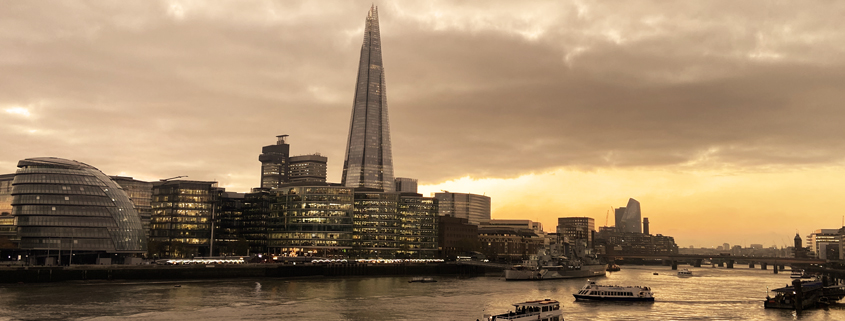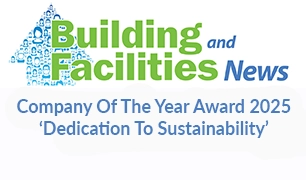The National Infrastructure Commission (NIC), the government’s independent advisory body, has published its second National Infrastructure Assessment. The NIC advisory is a five-year review that sets out plans to transform the country’s energy, transport and other key networks over the next 30 years.
The immediate interpretation if the new NIC advisory is one of prioritisation of heat pumps and district networks in order to switch buildings away from gas heating, with many reporting recommendations for ruling out the use of hydrogen.
Less obvious from the headlines is that the Commission’s “comprehensive and fully costed programme of government support” once again mainly targets households to make the carbon emissions saving switch from gas to electric, observing that 7 million domestic buildings in England will need to make this transition by 2035 to meet the Sixth Carbon Budget.
Of the £6.4bn predicted to be required by the NIC advisory for this process, half would be destined for domestic properties and half used to improve energy efficiency and install heat pumps across the public sector estate and social housing.
The NIC’s stance on hydrogen relates specifically to domestic applications, ruling out its application for domestic heating estimating that a system with hydrogen heating would be around “1.2 times more expensive than a system without”. Heat pumps, it says, use around three times less energy than hydrogen boilers to produce heat.
The focus for hydrogen should be one of power generation and industrial decarbonisation states the NIC advisory report.
Comments from the industry that, “Heat pumps already cost less to run than a gas boiler” are sweeping statements that when taken out of a domestic space heating context are blatantly untrue. This is especially the case when it comes to water heating where gas remains three to four times cheaper depending on tariffs and current grid costs of electricity and gas. In the commercial environment heat pumps absolutely have a role to play in decarbonising hot water production, but the technology still is best applied as a preheat resource, otherwise capital and operational costs begin to soar. Adveco remains an exponent of hybrid approaches that draw the best from a mix of technologies which include heat pumps, electric heating, solar thermal and ultimately green gasses, including hydrogen, to cut carbon emissions while still meeting the large-scale demands of the commercial sector for daily hot water.
The NIC correctly recognises that the heat pump market needs significant support to reach economies of scale and reduce costs if net zero targets are to be met, but the oft-cited “rapid replacement of the gas grid” by those lobbying for electrification of homes, fails to consider the wider impacts of the built environment. In particular, the commercial sector remains a major source of carbon emissions from its built estates. NIC’s commitment to industrial decarbonisation through hydrogen is to be supported but needs to more tacitly incorporate commercial buildings with high energy demands, such as for safe, business-critical hot water production. The danger is that the commercial sector continues to be a grey area of government oversight and more critically, lack of financial support.
Addressing homeowners’ concerns is a predominantly political play, especially with the expectations of an election in the near term but continues to be detrimental to the wider need to address energy use and climate change impact of the wider built environment of the UK.
Under the 2015 Paris climate agreement, 197 countries – including the UK – agreed to try to limit global temperature rises to 1.5C by 2100. To achieve this, scientists say that net zero CO₂ emissions must be reached by 2050. These are legally binding agreements with targets that critics have accused Rishi Sunak of watering down after he relaxed a plan to phase out the installation of gas boilers by 2035, instead aiming for only an 80% phase-out to save households money. NIC chairman Sir John Armitt said, “We’ve got a 2035 target [on boilers] which is only 12 years away, I find it hard to accept that we are likely to meet that when we are installing 50-60,000 heat pumps at the absolute most per annum at the moment when the government has set itself a target of 600,000 heat pumps per year by 2028.”
The International Energy Agency (IEA), the global energy watchdog, said in its latest report that the growth in clean energy and technologies was “impressive” and predicted renewables would provide half of the world’s electricity by 2030.
But it also added the caveat that the phase down of fossil fuels is not happening quickly enough and that the world’s reliance on fossil fuels means that we are still on track to be facing a global average temperature rise of 2.4C by 2100.
If the NIC chairman is concerned about hitting domestic targets for heat pumps that have been the focus of government policy and support, then the commercial sector represents a ticking time bomb, where a lack of grants and clear advice will only further exacerbate the problems of achieving future carbon budgets which are critical for meeting net zero aims.
In response to the publication of this latest NIC advisory plan, officials at the Department for Energy Security and Net Zero said it was incentivising investment in the heat pump market, providing up to £30 million to support UK manufacturing in a bid to make the switch a more “attractive choice”. Some £6.6bn is being put into clean heat and energy efficiency, with a further £6 billion of new funding from 2025, the department added. A spokesperson also said in response to the IEA report that the independent Climate Change Committee recognised oil and gas would continue to be part of the UK’s energy mix on the path to net zero. This gives us hope that there remain opportunities to support the right energy and technology mixes for commercial demands but the sector needs this to be laid out in black and white.
COP28 – the UN’s climate summit – takes place this November in Dubai, where it is hoped world leaders will make further commitments to tackling climate change. We wait to see if greater clarity and new commitments to action are forthcoming.
















